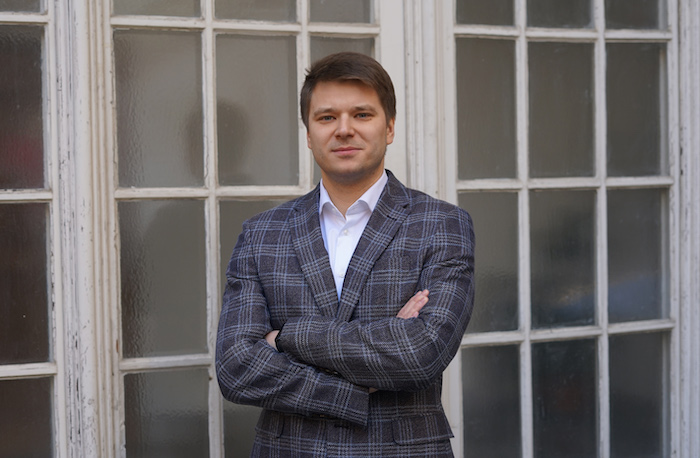
Key Highlights from the Inaugural LF Dealmakers European Edition
Last week, the LFJ team attended the inaugural LF Dealmakers European Edition, held across two days at the Royal Lancaster in London. Building on the longstanding success of Dealmakers’ New York event, the first edition of the European conference brought together an impressive selection of leaders from across the industry.
Spread across two days, LF Dealmakers featured an agenda packed with insightful conversations between some of the most prominent thought leaders in the European litigation finance market. An array of panel discussions covered everything from the looming potential of regulation to the increasing corporate adoption of third-party funding, with these sessions bolstered by a keynote interview between two of the key figures in the Post Office Horizon litigation.
A long road to justice for the postmasters
In a conference that managed to fill every single panel discussion with speakers engaged in some of the largest and most influential funded disputes taking place in Europe, the standout session of the two days provided unparalleled insight into one of the most famous cases of recent years. The keynote interview on ‘The Future of Litigation Funding in the Wake of the Post Office Horizon Scandal’ saw James Hartley, Partner and National Head of Dispute Resolution Freeths, and Neil Purslow, Founder & CIO, Therium, offer up a behind-the-scenes tale of the sub-postmasters campaign for justice.
Going back to their first involvement with the case, James Hartley reminded attendees that whilst those looking at the case post-judgement “might think it was a slam dunk”, this was not the viewpoint of the lawyers and funders who first agreed to lead the fight against the Post Office. As Hartley described it, this was a situation where you had “a government owned entity who would fight to the end”, with a multitude of potential issues facing the claimants, including the existence of criminal convictions, the limited amounts of documented evidence, and the fact that the Post Office was the party that had ninety percent of the data, documents, and evidence.
Hartley also offered his own perspective on the legal strategy adopted by the Post Office and its lawyers, noting that at every stage of the litigation, “every single issue was fought hard.” He went on to explain that whilst he was “not critical” of the defendant’s strategy in principle, there remains the underlying issue that “the arguments they made were not consistent with the evidence we were seeing.” Hartley used this particular point to illuminate the issues around defendant strategies in the face of meritorious litigation that is being funded. He summarised the core issue by saying: “There is nothing wrong with fighting hard, but it’s got to be within the rules, and in a way that helps the court get to a just outcome.”
Offering praise for the support provided by Purslow and the team at Therium to finance the case, Hartley stated plainly that “without Therium’s funding it would not have gone anywhere, it would not have even got off the ground.” Both Purslow and Hartley also used the case to highlight problems around the lack of recoverability for funding costs and how that incentivises defendants such as the Post Office to prolong litigation and inflate legal costs. Hartley said that he would welcome a change to rules that would allow such recoverability, arguing that in this case “it would have neutralised the Post Office’s strategy to just keep driving up costs on the claimants side.”
What problem is regulation solving?
It was unsurprising to find that questions around the future of regulation for the litigation funding industry were a regular occurrence at LF Dealmakers, with the event taking place only a few days on from the House of Lords’ debate on the Litigation Funding Agreements (Enforceability) bill. From the opening panel to conversations held in networking breaks between sessions, speakers and attendees alike discussed the mounting pressure from government and corporate opponents of third-party funding.
The view from the majority of executives at the event seemed to revolve around one question, which was succinctly put by Ben Moss from Orchard Global: “What are the specific issues that require regulation, and what is the evidence to support those issues?”
This question became somewhat of a rallying cry throughout the conference, with suggestions of increased scrutiny and oversight being turned back on the industry’s critics who make claims of impropriety without citing evidence to back up these claims. Whilst several speakers referenced the recent LFJ poll that found a broad majority are open to the potential for new regulation, Ben Knowles from Clyde & Co described a lot of the discourse around the issue as “a fairly partisan debate.”
Among the few speakers in attendance who offered a contrasting view on regulation, Linklaters’ Harriet Ellis argued that “regulation done right would be good for the industry.” However, even Ellis acknowledged that any rules would have to be carefully crafted to provide a framework that would work across the wide variety of funded disputes, saying that a “one size fits all approach does raise issues.”
Regarding the government’s own approach to the issue through the draft legislation making its way through parliament, all of the executives in attendance praised lawmakers’ attempts to find a solution quickly. Alongside these government-led efforts, there was also a feeling among legal industry leaders that funders and law firms have to be part of the solution by promoting more education and understanding about how litigation finance works in practice. Richard Healey from Gately emphasised the need for firms to engage in “hearts and minds work” to change wider perceptions, whilst Harbour’s Maurice MacSweeney emphasised the need to “create the environment where law firms and funders can flourish.”
Innovation through collaboration
Outside of the narrow debate around legislation and regulation, much of the conference was focused on the speed at which litigation finance continues to evolve and create new solutions to meet complex demands from the legal industry. This was perhaps best represented in the way speakers from a variety of organisations discussed the need for a collaborative approach, with executives from funders, insurers, law firms, investors and brokers, all discussing how the industry can foster best working practices.
The interplay between the insurance and funding industry was one area that offered plenty of opportunity for insightful discussions around innovation. Andrew Mutter from CAC Speciality noted that even though “insurers are not known for being the fastest and moving the most nimbly,” within the world of litigation risk “the insurance markets are surprisingly innovative.” This idea of an agile and responsive insurance market was backed up by the variety of off the shelf and bespoke products that were discussed during the conference, from the staples of After-The-Event and Judgement Preservation Insurance to niche solutions like Arbitration Default Insurance.
Delving into the increasingly bespoke and tailored approach that insurers can take when working with funders and law firms, Jamie Molloy from Ignite Speciality Risk, described how there are now “very few limits on what can be done by litigation insurers to de-risk.” Whilst there is sometimes a perception that insurers are competing with funders and lawyers for client business, Tamar Katamade at Mosaic Insurance offered the view that it is “more like collaboration and synergy” where all these parties can work together “to help the claimant and improve their cost of capital and reduce duration risk.”
Class action fervour across Europe
Throughout both days of the LF Dealmakers conference, the volume and variety of class actions taking place across the European continent was another hot topic. However, in contrast to an event focused on the American litigation finance market, the common theme at last week’s forum was the wideranging differences between large group claims across individual European jurisdictions. In one of the most insightful panels, the audience were treated to an array of perspectives from thought leaders practicing across the UK, Spain, and the Netherlands.
The example of Spanish class actions provided an incredibly useful view into the nuances of European claims, as a country that is still in the process of implementing legislation to comply with the EU’s collective actions directive, but has already evolved routes for these types of actions over the last decade. Paul Hitchings of Hitchings & Co. described how the initiative to innovate has come “more from the private sector than the legislature”, with domestic law firms having become “experienced with running massive numbers of parallel claims” as an inefficient, yet workable solution. Hitchings contrasted Spain’s situation with its neighbouring jurisdiction of Portugal, which he argued has been comparatively forward thinking due to the country’s popular action law.
Speaking to the Dutch class actions environment, Quirijn Bongaerts from Birkway, argued that the “biggest game changer” in the country was the introduction of a real class actions regime in 2020. Bongaerts explained that the introduction of this system allowed for “one procedure that fits all types of claims”, which allows not only claims for damages, “but also works for more idealistic cases such as environmental cases and ESG cases.”
LFJ would like to extend our thanks to the entire Dealmakers team for hosting such an engaging and insightful event, which not only offered attendees a view into the latest developments in litigation finance, but also created a plethora of networking opportunities throughout both days. LFJ has no doubt that after the success of the inaugural LF Dealmakers European edition, a return to London in 2025 will cement the conference as a must-attend feature in the litigation funding events calendar.



























